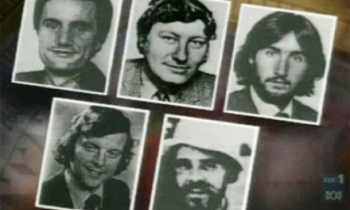BANGALORE: Terming the Government's proposed legislative initiatives against the media ``undemocratic, " Indian Newspaper Society's outgoing president Jacob Mathew on Monday said a threat to the freedom of the media was a serious threat to the country's economic viability.
Addressing the 67th Annual General Meeting of the society here, he said the new initiatives were a threat to the media's freedom to report, inform and educate.
``In a democratic society, content in the media should only be subject to self-regulation. " The INS took up the matter with the political and administrative leadership.
Mr. Mathew expressed the society's concern at the Government's Media Policy, in which the draft Broadcast Services Regulation Bill envisaged the creation of a Broadcast Regulatory Authority empowered to administer a content code and allowing the government to restrict cross-media holdings of media enterprises.
Mr. Mathew said there was a sufficient framework of laws to ensure that the freedom guaranteed by the Constitution was not misused by the media.
Voicing concern over the proposed restrictions on cross-media holdings, he said newspaper enterprises had made large investments in the broadcast media, in which the investment market had also taken a significant position. These investments could not be jeopardised.
Mr. Mathew said the print media continued to enjoy about half of the advertising business in the country which had a turnover between Rs.12,000 crore and Rs.14,000 crore. The share of television was estimated at between 38 and 42 per cent and of radio at two per cent. The radio would, however, emerge as a significant claimant for the advertising rupee considering the recent explosion of FM licence.
In the long run, the threat from TV might be more significant as channels proliferated in the news area. Strategies had to be worked out to ensure that the press continued to be a major player in the country's democratic process.
On the projects of PriceWaterhouseCoopers and INS projections, Mr. Mathew said the advertisement revenue of the press medium would continue to grow at a healthy 12 to 25 per cent a year over the next five years. As a dominant player in the advertising market, the newspaper industry had to ensure that the creative process of brand building continued to devise engaging and effective ways of utilising the advertising space sold by newspapers. The industry also needed to educate and equip media planners and buyers on deploying the press medium effectively in an environment in which TV appeared to offer an enticing alternative.
On the Impact Multiplier study, he said the first phase of the exercise, based on the largest field survey of its kind any where in the world, sought to quantify the incremental value of deploying press advertising in campaigns, which might otherwise have been released only through TV. The second phase would be completed by the end of 2006. The study would deliver software that could be dovetailed with the NRS and other media database to optimise the use of advertising funds.
Referring to the recent changes in format for applications for import entitlement of newsprint, he said through such changes the Government could be trying to introduce administrative control on quantities of newsprint being imported by INS members. The benefits of a liberalised trade policy should not be denied to the newspaper industry. Mr. Mathew hoped that the INS' case for a zero per cent Value Added Tax on newsprint would get a favourable decision from the authorities.









